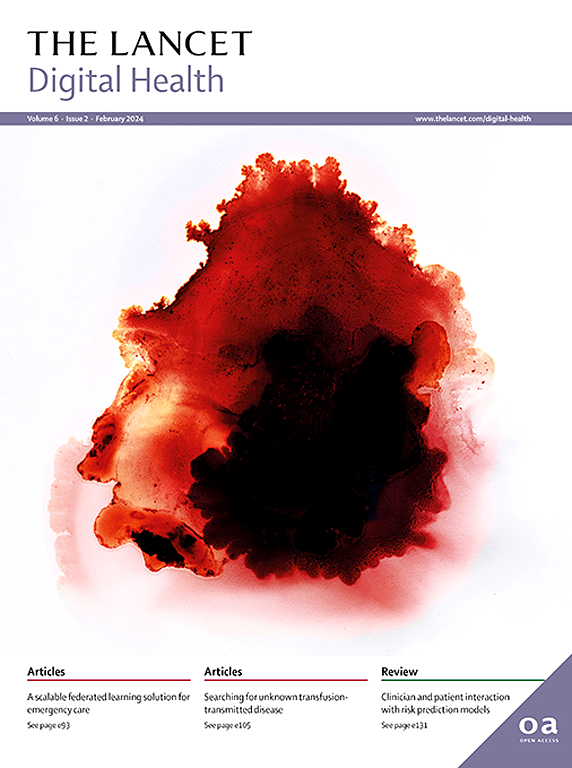Digital twins, synthetic patient data, and in-silico trials: can they empower paediatric clinical trials?
IF 24.1
1区 医学
Q1 MEDICAL INFORMATICS
引用次数: 0
Abstract
Randomised controlled trials are the gold standard to assess the effectiveness and safety of clinical interventions; however, many paediatric trials are discontinued early due to challenges in patient enrolment. Hence, most paediatric clinical trials suffer from lack of adequate power. Additionally, trials are expensive and might expose patients to unproven therapies. Alternatives to overcome these issues using virtual patient data—namely, digital twins, synthetic patient data, and in-silico trials—are now possible due to rapid advances in digital health-care tools and interventions. However, such digital innovations have been rarely used in paediatric trials. In this Viewpoint, we propose using virtual patient data to empower paediatric trials. The use of virtual patient data has the advantages of decreased exposure of children to potentially ineffective or risky interventions, shorter trial durations leading to more rapid ascertainment of safety and effectiveness of interventions, and faster drug approvals. Use of virtual patient data could lead to more personalised treatment options with low costs and could result in faster clinical implementation of interventions in children. However, ethical and regulatory concerns, including replacing humans with digital data, data privacy, and security should be addressed and the safety and sustainability of digital data innovation ensured before virtual patient data are adopted widely.
数字双胞胎、合成患者数据和计算机试验:它们能增强儿科临床试验的能力吗?
随机对照试验是评估临床干预措施有效性和安全性的黄金标准;然而,由于患者招募方面的挑战,许多儿科试验被提前终止。因此,大多数儿科临床试验缺乏足够的权力。此外,试验费用昂贵,可能会使患者接受未经证实的治疗。由于数字医疗保健工具和干预措施的快速发展,现在有可能使用虚拟患者数据(即数字双胞胎、合成患者数据和计算机试验)来克服这些问题。然而,这种数字创新很少用于儿科试验。在这个观点中,我们建议使用虚拟患者数据来授权儿科试验。使用虚拟患者数据具有以下优点:减少儿童接触可能无效或有风险的干预措施,缩短试验持续时间,从而更快地确定干预措施的安全性和有效性,以及更快地批准药物。使用虚拟患者数据可以带来更个性化的低成本治疗选择,并可以更快地在儿童中实施干预措施。然而,在虚拟患者数据被广泛采用之前,应该解决伦理和监管问题,包括用数字数据取代人类、数据隐私和安全性,并确保数字数据创新的安全性和可持续性。
本文章由计算机程序翻译,如有差异,请以英文原文为准。
求助全文
约1分钟内获得全文
求助全文
来源期刊

Lancet Digital Health
Multiple-
CiteScore
41.20
自引率
1.60%
发文量
232
审稿时长
13 weeks
期刊介绍:
The Lancet Digital Health publishes important, innovative, and practice-changing research on any topic connected with digital technology in clinical medicine, public health, and global health.
The journal’s open access content crosses subject boundaries, building bridges between health professionals and researchers.By bringing together the most important advances in this multidisciplinary field,The Lancet Digital Health is the most prominent publishing venue in digital health.
We publish a range of content types including Articles,Review, Comment, and Correspondence, contributing to promoting digital technologies in health practice worldwide.
 求助内容:
求助内容: 应助结果提醒方式:
应助结果提醒方式:


